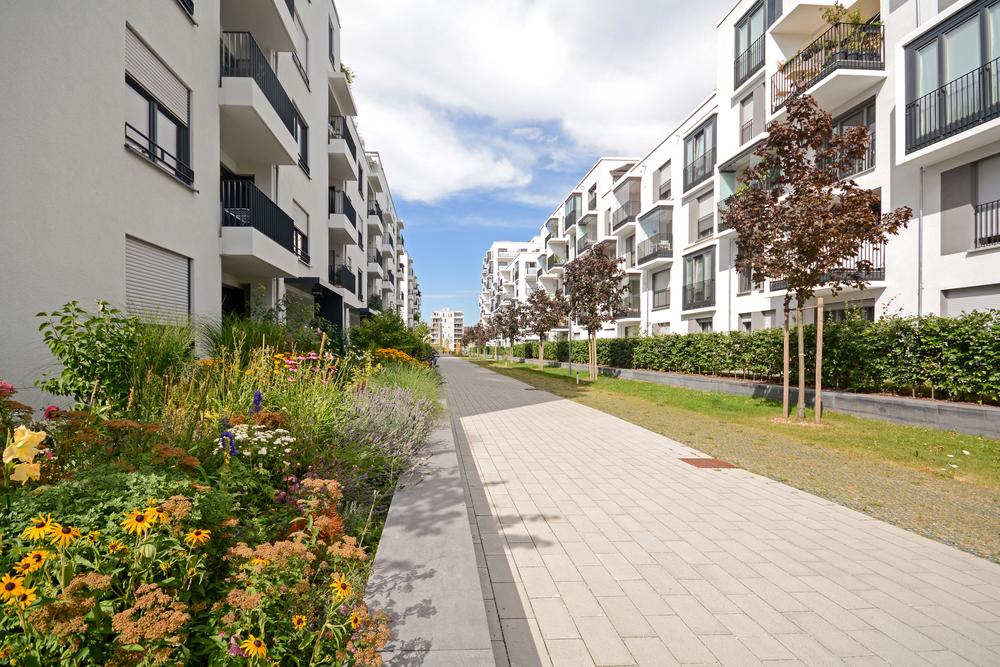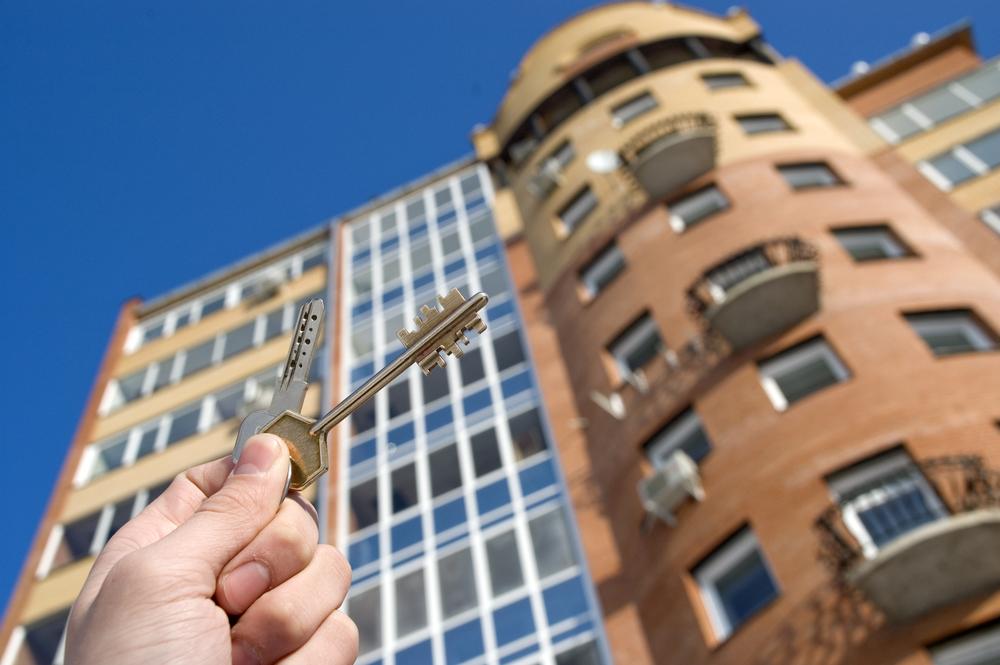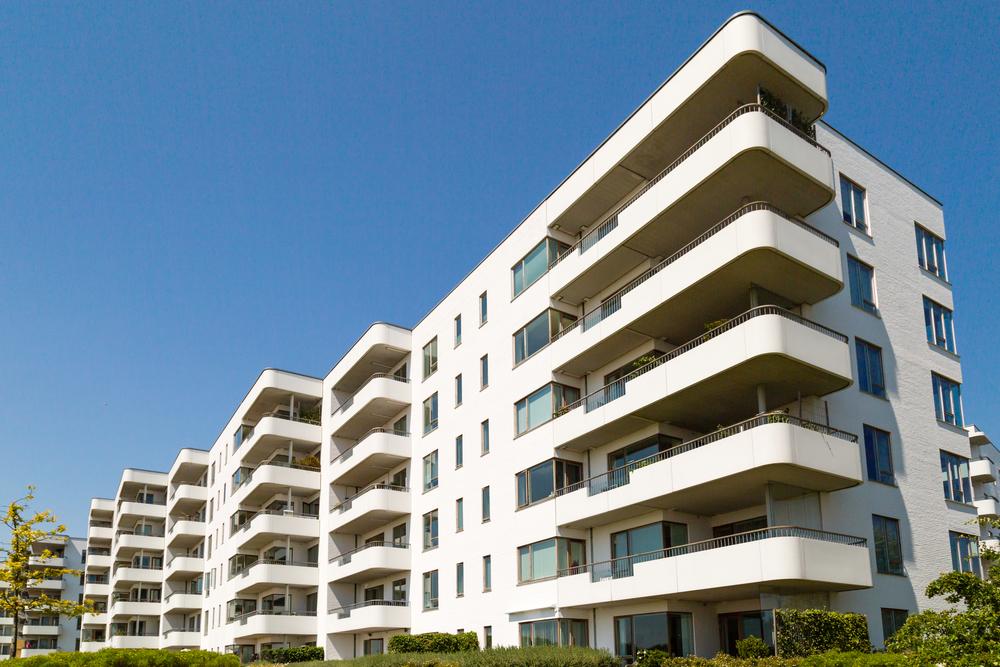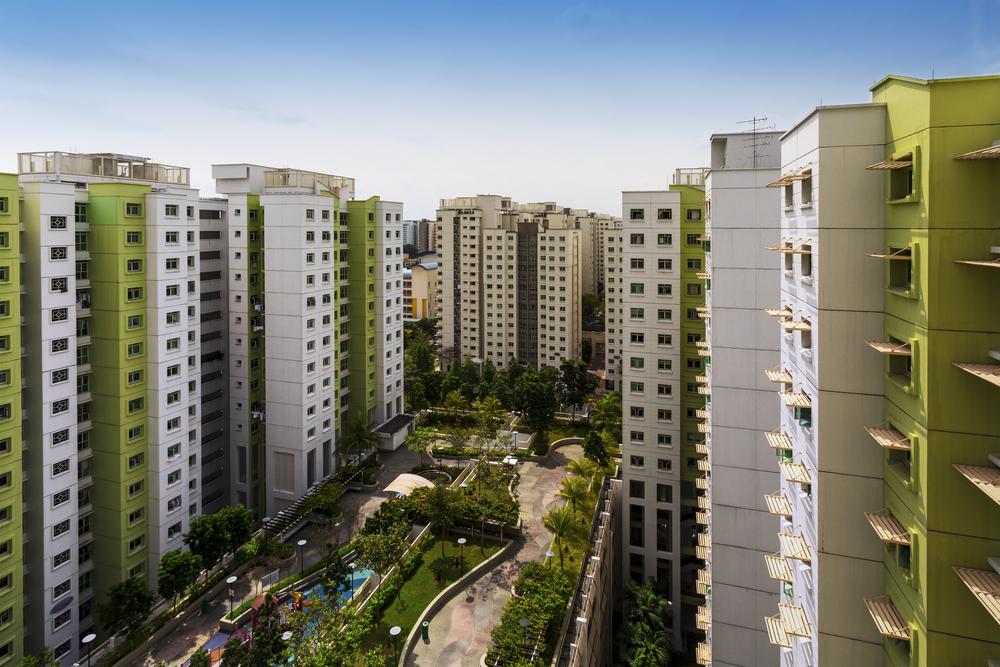
While some consider cleaning services to be an unattractive venture, Savills Singapore sees it as an added benefit to its facilities service offerings. This is why it acquired the majority part of Absolute Maintenance Services (AMS) the 20-year old cleaning and sanitising service provider in September.
The Botany at Dairy Farm condo floor plan to develop the 1.56-hectare plot and maximize the neighbourhood’s good attributes.
The acquisition will propel Savills from an unbeatable position in facilities service providers to within the top five. “We want to be the sole international service provider within the three top players within Singapore,” says Chris Marriott, Savills Southeast Asia CEO.
Over the past 10 years, Savills has been building its property management integrated facilities management and facilities management businesses in Singapore. “Combined with the facilities management business, we hope that the turnover of the entire property managing business is expected to reach $100 million in the next calendar year.” claims Marriott.
He hopes to replicate his strategy and strategy in Singapore and the rest of the region. After being working in Asia since 1990, and working with Savills in 1995 Marriott was a resident of Hong Kong and Singapore. He is based in Singapore at present, he manages Savills’ entire operations across Southeast Asia.
“I’ve always believed that in Asia we’ve faced the challenges of the famine and feast more than we do in the Western world, whether you’re talking about an Asian Financial Crisis, the dotcom boom and bust, Covid or property cooling measures,” says Marriott. “We’ve been required to be flexible in how we conduct our business. This requires a strong plan that is able to withstand the fluctuations and highs that occur in real estate market.”
Counterbalance
To counterbalance the transient nature of the agency business, which is known to be volatile, Savills is building up its revenue stream through contracts-based companies, also known as “perennials” according to Marriott. For Savills this began with the purchase of CKH the Strata Management company established in 2011 by Chan Kok Hong, with the beginning stake of just 51% in 2011.
Since since then, CKH Strata Management has been integrated into Savills’ property management business with Chan in charge as managing director. It’s now the biggest strata property manager in Singapore with a portfolio that includes more than 160 government corporation-owned strata title (MCST) buildings that include around 10,000 housing units. Winnie Wong is deputy director for Savills property management plans to expand its portfolio by 200 structures that will have more than 60,000 units.
Alongside the residential strata management business Savills is believed to be expanding its presence in the industrial and commercial area, in both single-ownership as well as strata-titled properties like Orchard Gateway and 20 Collyer Quay. This segment of business is run by Tang Chee Charn, executive director of Savills property management. Tang was recruited to Savills following his departure from Colliers just two years back. He was the last director for property management.
An integral component of Savills its overall property managing business Facilities management, as well as its facilities management services, which is led by the executive director Robin Leow. Some of Savills Facilities Management customers are Bank of East Asia and Visa corporate offices.
Leow was key in the acquisition process of AMS the company that offers cleaning and facilities services for large-scale industrial and commercial warehouses, buildings, commercial kitchens, and institutions. The company’s clients are The Building and Construction Authority, Singapore Press Holdings and Fullerton Bay Hotel. The company that AMS’s sister, Solute, a professional home cleaning service was purchased by AMS.
Other acquisitions
Since January 1, Savills acquired a significant stake in the Singapore-based project management service firm Merx Group. Established in 2001 and led by the Chief Executive Officer William Forwood, Merx has 50 staff across Asia and covers a range of industries from data centres to workplaces hotel, industrial, and retail.
Recent projects executed through Merx in Singapore include the fitting of Dyson’s headquarters of 148,000 square feet in the St James Power Station heritage building, as well as Axis Communications’ regional office in an area of 11,484 square feet Grade-A office space in Suntec City Tower 1. A different significant undertaking was Metrojet’s automated aerospace plant located in Clark located in the Philippines.
“Merx is the foundation for growing our regional services for managing projects,” says Marriott. Merx’s operations are completely integrated into Savills”, Forwood, regional lead for project management, is “actively looking to expand our reach across Southeast Asia and the rest of the Asia Pacific region”, Marriott says.
According to Marriott Merx, the company’s services complement Savills project management services which is led by Vincent Lau, which handled the office fitting-out process for Lazada in its brand new office of 109,000 square feet on four floors in Lazada One situated in Bras Basah and KPMG’s brand new office in Asia Square Tower 2.
On July 20, 2021 Savills acquired a strategic stake in the Malaysian supply chain consulting firm, LCA. It is now rebranded as LCA-Savills. The consultancy for logistics and supply chain firm has a regional presence. “This firm has allowed us an opportunity to sit at the boardroom table alongside the C-suite of manufacturers, distributors, e-retailers and logistics companies, to help them develop their logistics and real estate strategies for this region,”” Says Marriott.
To expand its property management company, Savills spent $650,000 on an “re-engineering program” which takes two years finish. “We’ve hired consultants to assist us in assessing the digitization and digitalisation of the services we provide,” says Marriott. “It’s not only about introducing new technologies and applications, but rather about streamlining our service to make it more efficient and adaptable. It is a response to the challenges which every business in Singapore has to face that is the workforceboth in the office as well as in the field.”
Replicating the recurring income business within the region
Outside of Singapore, Savills is expanding its recurring income business model to the remainder of the region. It’s starting with Vietnam in which the company employs more than 2,500 people at Hanoi, Ho Chi Minh City and Danang and is in charge of 140 buildings throughout Vietnam and is mainly residential. The firm is currently experimenting with commercial properties, with several under the management of assets.
“The Vietnam market is ahead of others emerging economies,” says Marriott. “It’s dynamic, modern and has adopted technology in many areas that are related to business.”
The firm also increased its property management services in Thailand as well as Malaysia. For Indonesia, Savills bought a controlling stake in CBI CBI, which is a property management company that was once one of Coldwell Banker franchise.
Savills achieved a major coup during its time in Indonesia in the year it appointed the sole agency to Rajawali Place, a mixed-use development featuring two towers which include the 65-story St Regis Jakarta Hotel and the 30-storey Rajawali Place office tower. The office tower covers an overall lettable area of approximately 455,900 square feet. It also has 26,049 square feet in retail spaces. This mixed-use project was finished in the 3rd quarter of 2022 and is located on a 62.937 square feet site with a view of West Setia Budi Reservoir in Setiabudi, Jakarta, Indonesia.
Along with Savills Proptech investment affiliate Grosvenor Hill Ventures, Marriott is looking to invest in technology that will enhance its real property business. In the year 2019, Savills teamed up with HomeClick to develop iCondo which is an online management system for residential residents. It allows residents to connect with building managers as well as facilities in the development.
As per Marriott, iCondo now dominates in its market within Singapore and is looking to expand along with Savills to the other regions including Indonesia, Vietnam and Thailand.
Savills is also investing in, and is working closely with Banco the new invoice financing service that aids SMEs within the property management industry. “A large number of SMEs are plagued by problems with cashflow and must provide their services prior to when they receive payment,” notes Marriott. “And it’s very costly to access traditional banks to finance that gap in cashflow that is usually over an adolescent two-to-three-month time. Therefore, they utilize factors.” Banco is therefore designed to let small businesses get financing at a lower cost, says Marriott.
Agency business
In addition to the agency’s operations, there is Sally Tan, who came to the company in April, in the role of Savills Singapore’s director for commercial and industrial leasing. Tan is responsible for the expansion of the company’s leasing and sales business capability in the industrial and office space.
As per Marcus Loo, CEO of Savills Singapore, the firm offers advice to the online retailer Lazada as well as its subsidiary Alibaba Alibaba regarding their property needs in Singapore as well as elsewhere in the region.
Other notable office leasing customers the firm has been able to represent in recent times include multinational financial services firms like UBS, Allianz and EFG Bank as well as the global engineering firm Howden and Samsung, the consumer electronics giant Samsung and the international law firm of British-American origin Norton Rose Fulbright; and the most recent, international professional services company KPMG. “We also assist some of our clients throughout the region, not only in Singapore since a large portion of the top decision makers reside in Singapore,” says Loo.
Savills the capital markets and investment division, which is headed by Jeremy Lake and Galven Tan is also completing a variety of important market transactions, including that of the purchase Tanglin Shopping Centre for $868 million in February of this year, and the purchase of Private Freehold sites on Thiam Siew Avenue for $815 million in November. The team also has advised institutional investors about major commercial properties, shophouses, the strata title commercial properties and Good Class Bungalows and Good Class Bungalows, according to Loo.
Hybrid working is in the future and many companies are experiencing “right-sizing” currently, Loo observes. And that’s why the need for a workplace strategy team is essential: “Our team will assess what is most effective for a company from a property perspective,” says Loo. “It is not about cost, but rather the requirements of a business to create the ideal workplace strategy.”
In addition to offering workplace strategy consulting services for businesses, Savills has also created an workthere.com online platform that serves as an aggregater of all co-working spaces located in Singapore. Additionally, there are Savills leasing agents in place to help users find the best co-working space that will meet their requirements, according to Loo. “The market offers a vast selection of service providers, and can become difficult for the customer,” says Loo. “So we help them understand the different options, taking away all the frills so that they are aware of what they’re getting on the price they pay in terms of membership charges.”
Portal for landlords and tenants livethere.com
An alternative in the direction of workthere.com is livethere.com it is a platform that connects landlords of residential properties and tenants via an online portal. “We have seen more multi-property owners purchasing properties to invest or for their children’s future,” Loo says. Loo. This means there’s an imperative to help to get “the most profitable yield” on their investment properties Loo says.
Livethere.com was which was launched in April of in the year that is now live, links landlords with potential tenants . They can view the list of residential properties that are available for lease and the rental rates they are asking for. The platform is also beneficial for landlords. platform assists them in managing their portfolios, and warning them six months in advance of when leases for their properties expire and lets them evaluate the rent and yields in relation to most recent rate of rent and market yields. This helps them renew a lease with their current tenant upon renewal, says Loo. This will give the landlord “a comprehensive perspective” in relation to the residential investments in his portfolio, he says.
Since livethere.com was launched in April, it’s received between 300 and 400 inquiries every month, as per Loo. It’s beneficial to tenants as well because they’ll be able, in a short time, to identify and evaluate the various properties that meet their needs and location preferences. “Because the supply is extremely tight on the market for rental properties, lots of expatriates are looking to find a place before arriving into Singapore,” he says. “So livethere.com aids newcomers and those who are planning to relocate from abroad, both Singaporeans as well as expatriates.”
Another added benefit offered by livethere.com will be Savills Residential leasing agents can help tenants negotiate with landlords, says Loo.
Livethere.com is a livethere.com site was created as a result of Savills reputation as the biggest estate-owned strata-titled property management company in Singapore as per Loo. Therefore, in addition to managing the property, MCST representatives and the residents frequently inquire Savills’ property managers if they could assist in various aspects within the estate he says.
Savills Singapore has close to 600 employees within the property managing team. In addition to the AMS business, which employs more than 1,600 employees, Savills’ total headcount for the property management business in generalwhich encompasses facilities and management management -around 2,200according to his estimates.
“From my point of view, Savills is no longer only a consultancy and transaction firm,” says Loo. “We have evolved into a company that has a solid revenue stream which is augmented by the digitization of the business.”










